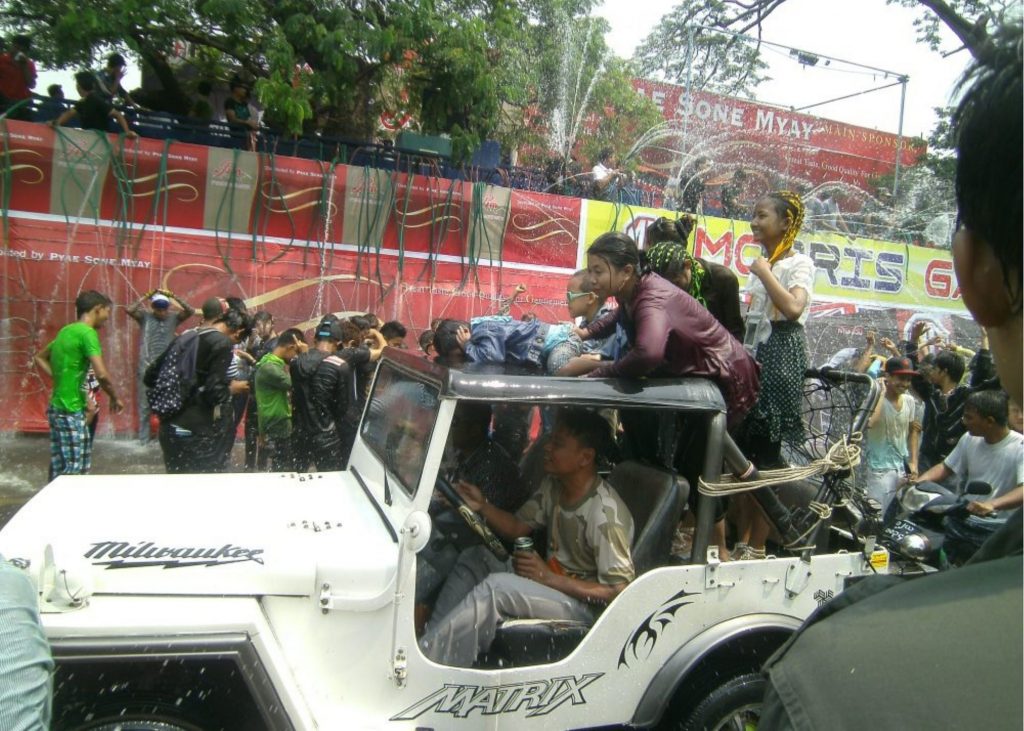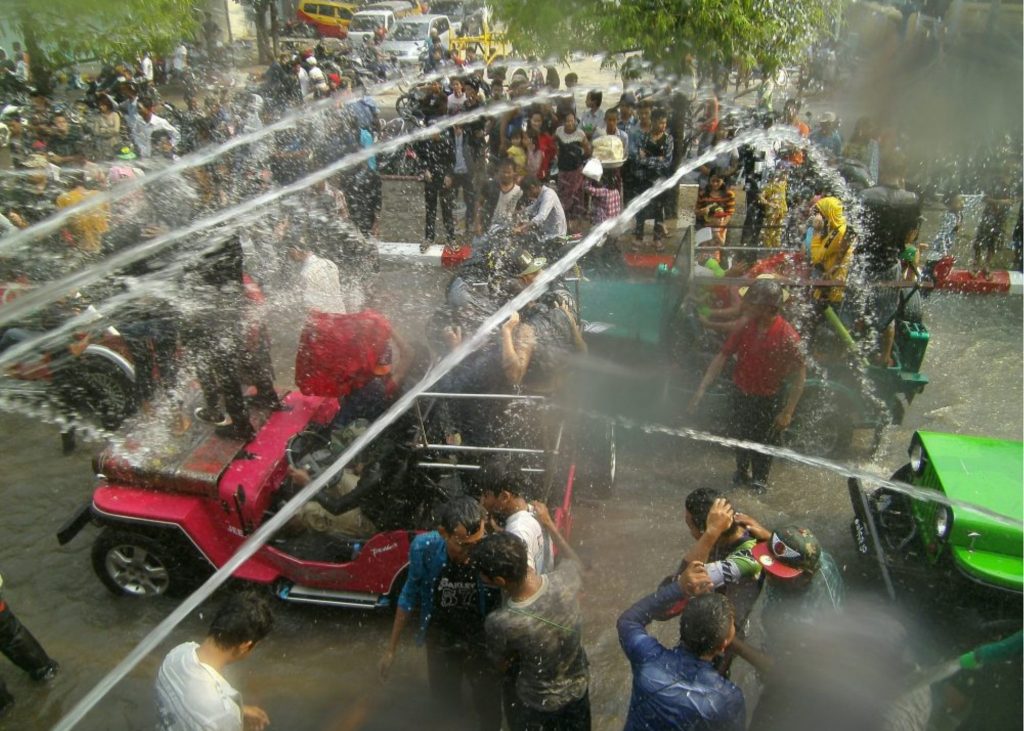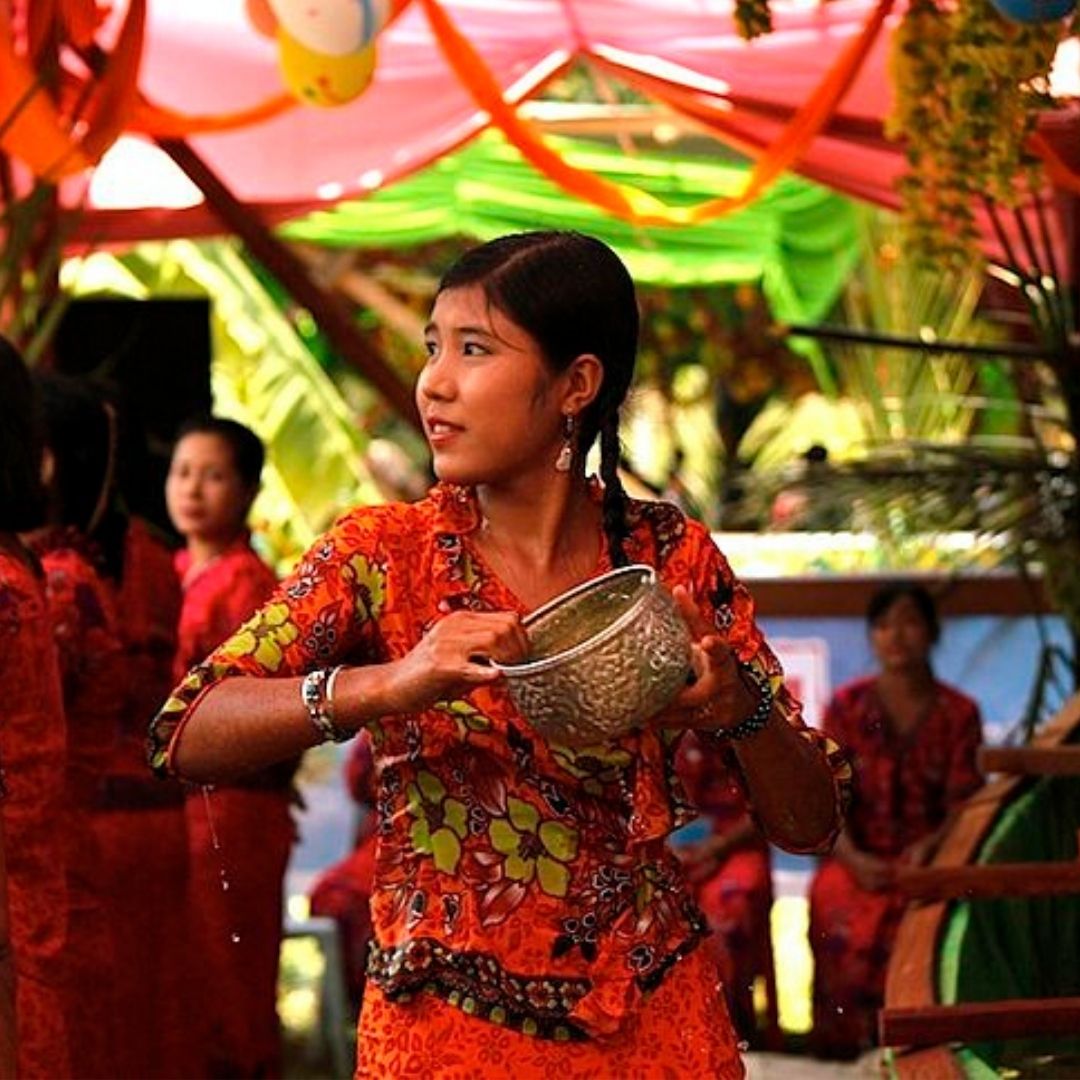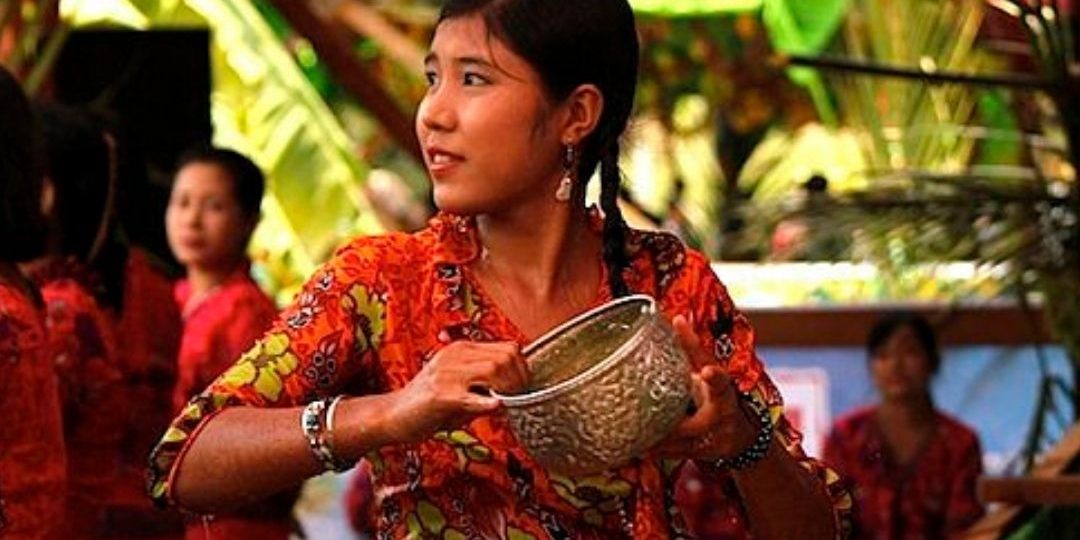The Water Festival in Yangon, Myanmar
The Water Festival, a giant four-day party which symbolizes the washing away of the old year and ushers in the new, is celebrated by the entire country with great enthusiasm and vast quantities of water. Anything that can hold water is used. Buckets, pots and pans, tin cans and water guns are filled with any available water—including stagnant ponds.
I had rented a jeep with Tin Win, a student at the University of Yangon. Dressed in camouflage, he drove us on manoeuvres throughout the city. To prepare for last year’s water war, he had bought plastic squirter guns, painted with saucer-eyed Japanese anime characters, that had a short range and didn’t hold much water.
This year we were well-armed with high-pressure, steel pump guns imported from China. Tin Win was dressed in Israeli army camouflage and I wore Marine fatigues, protective goggles and a cap with flaps hanging over my ears, to protect them from stinging water balloon attacks, the worst hits in this kind of urban warfare, especially when thrown from buildings or at high speed from close range.

“When do we attack?” I said.
“We’ll take them at the next turn,” Tin Win said from the gunner’s turret. “Watch your backs, when we go through. Sniper attacks have been reported.”
“That’s a critical supply route. We gotta make it through.”
‘Here it comes!’ Tin Win shouted above the roar of the water, coming at us from all sides. He braced his steel pump gun against his shoulder. “Double-click to full automatic.”
Some girls were huddled at the back of the jeep. They wore only T-shirts and blue jeans, but had brought thick towels for extra protection for times when we stopped at elaborately decorated stages where seductive dancers and singers lured passers-by into a trap of heavy water drenching. At these pandals, manned by village groups armed with high-powered hoses, we were pounded by water and thrashed around our vehicle while being entertained by graceful Burmese dancers.
“Incoming!” Tin Win yelled.
We dropped down on the floor. Everything happened so fast. Suddenly the impact of the water canon shook the vehicle and the stinging water guns lashed our eyes and deafened our ears.

Finally, driving out of the main deluge, we sat like a carload of refugees, huddled in drenched blankets and towels. A stinging sheet of water slapped my face. An impish boy smiled and ran off with his empty bucket. I shivered.
In the jeep behind us, a man wearing a ski mask with slits for eyes was crouched safely behind a fat man who smiled inanely, after someone had thrown a bucket of pond water at him, while frog-spawn dripped down his forehead. On the back of a truck, a young man in a Michael Jackson Thriller jacket and punk bracelets, was break-dancing to high-volume rock music. I noticed everywhere that the usually demure, longyi-wearing Burmese girls were today dressed in revealing miniskirts, tiny spandex tops, tight blue jeans or leather pants.
We pulled into a side street and stopped beside a water pump to restock our liquid ammunition. After we had filled our buckets and rested in the sun for a while we realized it was well past noon.
We stopped to eat at a nearby street stall where Burmese men, sitting on small wooden stools, were huddled around a small table eating bowls of steaming mohinga. A young woman wearing a sprig of jasmine in her hair served us from a large pot of the noodle and fish soup, bubbling over an open fire.
That afternoon passed quickly. We drove around squirting everyone in range, laughing and shouting, rarely speaking as any attempts at conversation were drowned out by the rowdy festivities, the cascading or splashing water and the blaring music.







